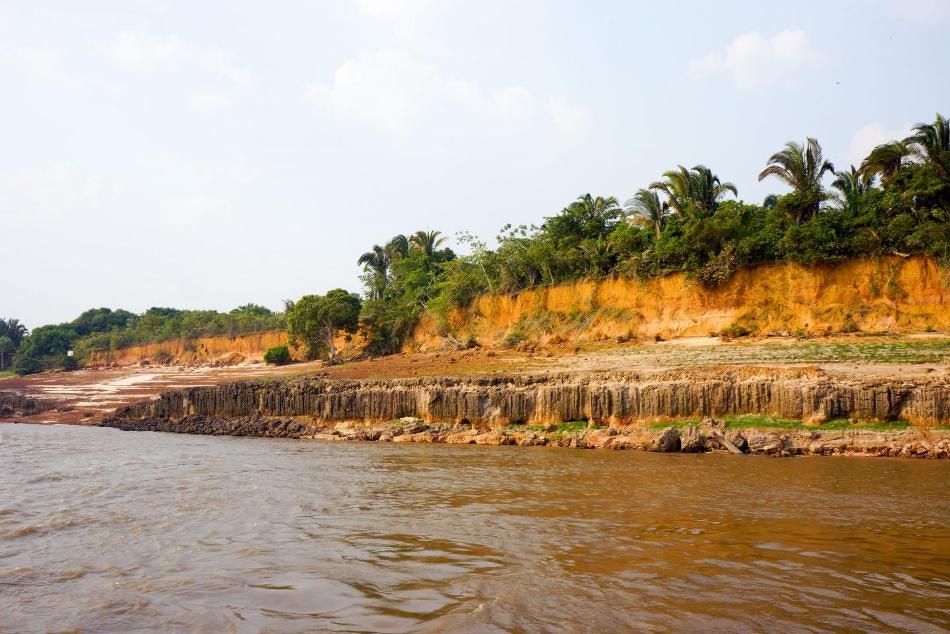Jul 10 2018
The majority of carbon emanating from fossil fuel combustion and wildfires is quickly released into the air as carbon dioxide. Scientists at the University of Zurich have recently revealed that the leftover residue, so-called black carbon, can age for millennia on land and in rivers heading for to the ocean, and thus represents a huge long-term reservoir of organic carbon. The research provides a key missing piece to the puzzle of understanding the global carbon cycle.
 Rivers transport black carbon from land to sea. (Credit - Gabriela Santilli, ETH Zürich)
Rivers transport black carbon from land to sea. (Credit - Gabriela Santilli, ETH Zürich)
Due to its common occurrence and propensity to remain in the environment, black carbon may be one of the keys in predicting and alleviating global climate change. In wildfires, usually, one-third of the burned organic carbon is retained as black carbon deposits rather than released as greenhouse gases. To begin with, black carbon remains stored in lakes and in the soil, and is then eroded from river banks and washed into the ocean. However, black carbon is not taken into consideration in global carbon budget warming simulations, since its role in the global carbon cycle is not properly understood due to a lack of knowledge about stocks, fluxes, and residence times in the environment.
First Worldwide Assessment of Black Carbon River Transport
Our study is the first to address the flux of black carbon in sediments by rivers on a global scale. We found that a surprisingly large amount of black carbon is exported by rivers.
Alysha Coppola, Postdoctoral Researcher, Department of Geography at the University of Zurich (UZH).
The research includes some of the largest rivers around the world, such as the Amazon, Brahmaputra, Congo, and major Arctic rivers. It is the first global river assessment of the radiocarbon age values and volume of black carbon transported as particles. The scientists learned that the more total river sediment is washed by rivers to the coast, the more black carbon travels with it and is finally buried in ocean sediments, forming a crucial long-term sink for atmospheric carbon dioxide.
Black Carbon can Age in Intermediate Reservoirs
To gain an insight into the processes taking place in the world's rivers, the UZH scientists partnered with colleagues from ETH Zurich, and the US-based Global Rivers Observatory at the Woods Hole Oceanographic Institution and the Woods Hole Research Center. They discovered that the black carbon pathway from land to ocean is largely fashioned by erosion in river drainage basins. Astonishingly, they learned that some black carbon can be stored for thousands of centuries before being exported to the ocean via rivers. This overview is new since it was formerly always assumed that following a fire, the remaining black carbon was rapidly eroded by water and wind.
However, the team learned that black carbon does not always originate from latest wildfires, but could be up to 17,000 years old, predominantly in the Arctic.
This explains the mystery as to why black carbon is continuously present in river waters, regardless of wildfire history. We found that black carbon can age in intermediate reservoirs that act as holding pools before being exported to the ocean.
Alysha Coppola